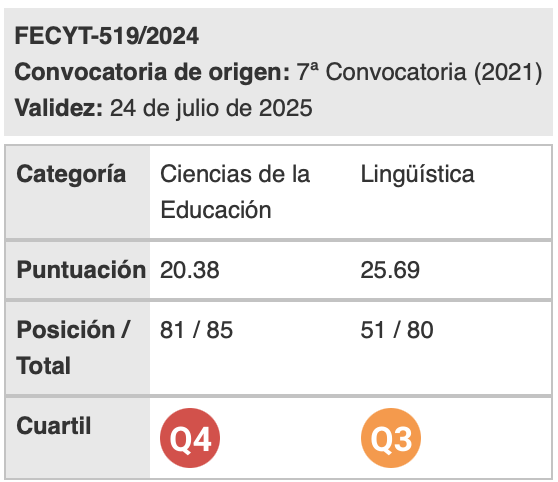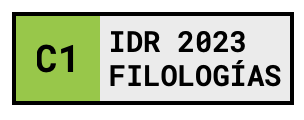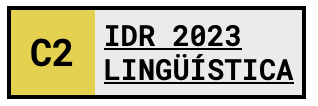English-written abstracts for Spanish publications: A challenge in the globalization of science
Keywords:
Spanish publications, English-written abstracts, globalization of science, metadiscourse, persuasionAbstract
The preeminence of English as the scientific lingua franca, together with the ever-present publish-or-perish dilemma, has brought increasing concern on Spanish scientists striving to achieve international recognition. Spanish journal editors try to make their journals look as professional as possible, most of them peer reviewed and their abstracts are listed in the most important databases. However, the problem of language seems to be the issue around which the dissemination of their publications is centered. In this report we examine the English-written abstracts of the Spanish Journal of Finance and Accounting, their content and form, and whether or not they are persuasive enough to lure the researcher into reading the paper. While the abstract is considered the first point of contact with the researcher, the expected results will show a rather irregular rendering of the information and, in general, a defective composition of the abstracts, in addition to local issues discussed in their articles. These results suggest a poor dissemination and repercussion of the authors’ contribution worldwide.
Downloads
References
Ad Hoc Working Group for Critical Appraisal of the Medical Literature (1987). A proposal for more informative abstracts of clinical articles. Annals of Internal Medicine, 106, 598-604.
Blankenship, K. L. & Craig, T. Y. (2006). Rhetorical question use and resistance to persuasion: An attitude strength analysis. Journal of Language and Social Psychology, 25, 111-128.
Borko, H. & Chatman, S. (1963). Criteria for acceptable abstracts: A survey of abstracters’ instructions. American Documentation, 14, 149-160.
Butler, D. (2000). French scientists turn to journals in English. Nature, 405, 500.
Carlino, P. (2005). Escribir, leer y aprender en la Universidad. Una introducción a la alfabetización académica. Buenos Aires: Fondo de Cultura Económica de Argentina.
Carreras Panchón, A. (coord.) (1994). Guía práctica para la elaboración de un trabajo científico. Bilbao: CITA, Publicaciones y Documentación.
Cremmins, E. T. (1982). The Art of abstracting. Philadelphia: ISI Press. Day, R. A. (1988). How to write and publish a scientific paper, 3rd ed. Phoenix–New York: Oryx Press.
Gillaerts, P. & Van de Velde, F. (2010). Interactional metadiscourse in research article abstracts. Journal of English for Academic Purposes, 9, 128-139.
Hartley, J. (2000). Are structured abstracts more or less accurate than traditional ones? A study in the psychological literature. Journal of Information Science, 26, 273-277.
Hartley, J. (2003). Improving the clarity of journal abstracts in psychology: The case for structure. Science Communication, 24, 366-379.
Hartley, J. & Benjamin, M. (1998). An evaluation of structured abstracts in journals published by the British Psychological Society. The British Journal of Educational Psychology, 68, 443- 456.
Hartley, J. & Betts, L. (2009). Common weaknesses in traditional abstracts in the social sciences. Journal of the American Society for Information Science and Technology, 60, 2010-2018.
Huth, E. J. (1987). Structured abstracts for papers reporting clinical trials. Annals of Internal Medicine, 106, 626-627.
Hyland, K. (1998). Persuasion and context: the pragmatics of academic discourse. Journal of Pragmatics, 30, 437-455.
Hyland, K. (2000). Disciplinary discourses. Social interactions in academic writing. Harlow, England: Longman – Pearson Education.
Hyland, K. (2002). Options of identity in academic writing. ELT Journal, 56, 351-358.
Hyland, K. (2005). Metadiscourse. Exploring interaction in writing. London–New York: Continuum.
Kafes, H. (2012). Cultural traces on the rhetorical organization of research article abstracts. International Journal on New Trends in Education and Their Implications, 3, 207-220.
Maher, J. (1986). The development of English as an international language of medicine. Applied Linguistics, 7, 206-218.
Meneghini, R. & Parker, A. L. (2007). Is there science beyond English? EMBO Reports, 8, 112-116.
Perales-Escudero, M. & Swales, J. M. (2011). Tracing convergence and divergence in pairs of Spanish and English research article abstracts. Ibérica. Journal of the European Association of Languages for Specific Purposes, 21, 49-70.
Pérez-Llantada, C., Plo, R. & Ferguson, G. R. (2011). ‘You don’t say what you know, only what you can’: The perceptions and practices of senior Spanish academics regarding research dissemination in English. English for Specific Purposes, 30, 18-30.
Phillipson, R. (1992). Linguistic imperialism. Oxford: Oxford University Press.
Pho, P. D. (2008). Research article abstracts in applied linguistics and educational technology: A study of linguistic realizations of rhetorical structure and authorial stance. Discourse Studies, 10, 231-250.
Piqué-Noguera, C. (2012a). Content and form in English business abstracts and research articles: A corpus-based genre approach. Valencia: Universitat de València; PhD dissertation.
Piqué-Noguera, C. (2012b). Writing business research article abstracts: a genre approach. Ibérica. Journal of the European Association of Languages for Specific Purposes, 24, 211-232.
Posteguillo Gómez, S. (2002). El título y el resumen de un artículo de investigación. In I. Fortanet Gómez (coord.), Cómo escribir un artículo de investigación en inglés (pp. 32-55). Madrid: Alianza Editorial.
St. John, M. J. (1987). Writing processes of Spanish scientists publishing in English. English for Specific Purposes, 6, 113-120.
Sternberg, R. J. (2000). Titles and Abstracts. They only sound important. In R.J. Sternberg (Ed.), Guide to Publishing in Psychology Journals (pp. 37-40). Cambridge: Cambridge University Press.
Swales, J. M. (1997). English as Tyrannosaurus rex. World Englishes, 16, 373-382.
Swales, J. M. (1998). Language, science and scholarship. Asian Journal of English Language Teaching 8. Retrieved April 20, 2012, from http://www.cuhk.edu.hk/ ajelt/vol8/art1.htm
Swales, J. M. & Feak, C. B. (2009). Abstracts and the Writing of Abstracts. Ann Arbor: The University of Michigan Press.
Swales, J. M, & Feak, C. B. (2010). From text to task: putting research on abstracts to work. In M.F. Ruiz-Garrido, Palmer-Silveira, J.C. & Fortanet-Gómez, I. (eds.), English for Professional and Academic Purposes (pp. 167-180). Amsterdam–New York: Rodopi.
Swales, J. M., Irwin, V. & Feak, C. B. (2009). Online commentary for Abstracts and the Writing of Abstracts. Retrieved June 13, 2012, from www.press.umich.edu/ esl/compsite/ETRW/9780472033355-commentary.pdf
Ventola, E. (1994). Abstracts as an object of linguistic study. In S. Čmejrková, Daneš, F. & Havlová, E. (eds.), Writing vs. Speaking: Language, Text, Discourse, Communication (pp. 333-352). Tübingen: Gunter Narr.
Weissberg, R. & Buker, S. (1990). Writing up research. Experimental research report writing for students of English. Englewood Cliffs, NJ, Prentice Hall Regents.
Downloads
Published
How to Cite
Issue
Section
License
Authors who publish with this journal agree to the following terms:
- Authors retain copyright and grant the journal right of first publication with the work simultaneously licensed under a Creative Commons Attribution License that allows others to share the work with an acknowledgement of the work's authorship and initial publication in this journal.
- Authors are able to enter into separate, additional contractual arrangements for the non-exclusive distribution of the journal's published version of the work (e.g., post it to an institutional repository or publish it in a book), with an acknowledgement of its initial publication in this journal.
- Authors are permitted and encouraged to post their work online (e.g., in institutional repositories or on their website) prior to and during the submission process, as it can lead to productive exchanges, as well as earlier and greater citation of published work (See The Effect of Open Access).

Revista de Lenguas para fines específicos is licensed under a Creative Commons Reconocimiento-NoComercial-SinObraDerivada 4.0 Internacional License.
























